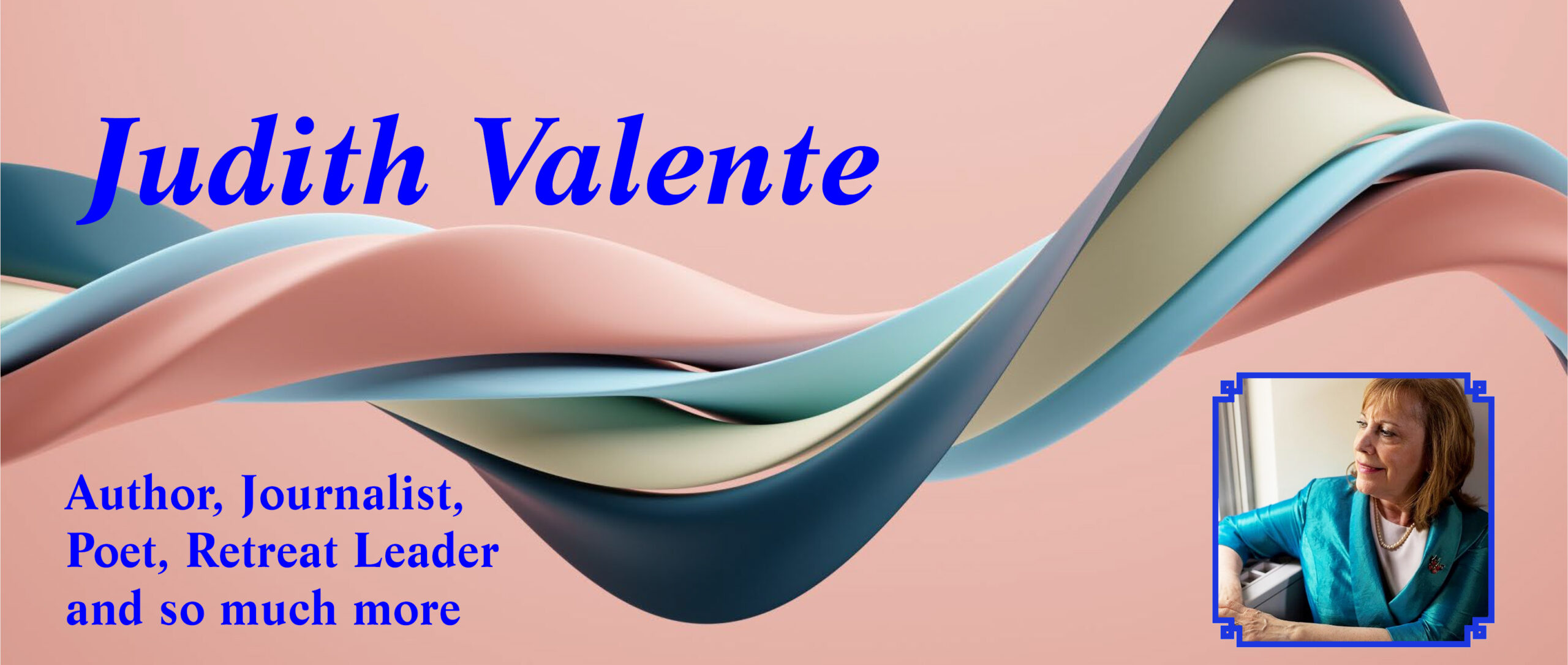
Judith's Books
Available now!
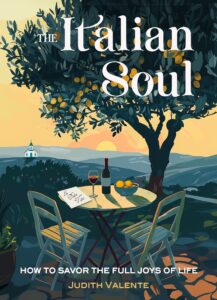 The Italian Soul offers practical guidance into how we can transport a taste of the Italian “good life” into our own homes. Additionally, it explores the contemplative practices and attitudes that seem to come naturally to a people who have made an art of living and working joyfully. It is both a travel dispatch and a spirituality guide for seekers who eschew traditional religious practices but are yearning for ways to bring more balance, sanity, and a greater sense of the transcendent into their daily lives.
The Italian Soul offers practical guidance into how we can transport a taste of the Italian “good life” into our own homes. Additionally, it explores the contemplative practices and attitudes that seem to come naturally to a people who have made an art of living and working joyfully. It is both a travel dispatch and a spirituality guide for seekers who eschew traditional religious practices but are yearning for ways to bring more balance, sanity, and a greater sense of the transcendent into their daily lives.The Italian Soul is available at the following booksellers:
Please also remember to support your local independent bookstores, which will be happy to order your books.
Now Available!
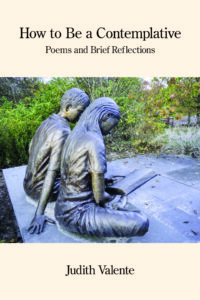
How to Be a Contemplative is Judith Valente’s latest collection of poetry, with each poem augmented by a brief reflection.
What others are saying about How to Be a Contemplative:
In her latest collection, Judith Valente shows us not only how to be a contemplative in our often busy and distracted world—but also how to slow down and become more human, paying closer attention to this one life. As she writes in “Lauds”: “I ask the day for its one word, and it gives it to me:/Enough.” These sumptuous, grounded poems “of lamentation and light” guide us toward the numinous in every new moment, in every memory, and in every fresh insight of the spirit. In Valente’s masterful hands, everything comes alive and sings, “overflowing with presence”—“even the soap dish, tea cup, and porch steps,” the ordinary leading us back to the sacred again and again in a book I have already come to treasure.
– James Crews, author of Unlocking the Heart: Writing for Mindfulness, Courage &
Self-Compassion and editor of How to Love the World: Poems of Gratitude & Hope
Judith Valente’s new book of poems, How to Be A Contemplative, is a meditative memoir, a primer of parables, a wisdom book, a cri di coeur, a calm in a storm, a friend and companion for dark nights and darker days – but most of all it is a love letter to the power of the imagination to perceive the invisible meanings beneath this world of visible things and the power of poetry to make them visible to others. Valente proves to be a gentle guide for the gentle reader, inviting us into spaces and places we don’t expect to go – a newborn infant’s consciousness, Li Po’s wine cup, Thomas Merton’s hermitage, the dreams of a drowning child, a geriatric couple’s ritual of love in a Spoleto gelateria – and finding in those extraordinary spaces and places grace after grace.
– Angela Alaimo O’Donnell, author of Holy Land, Dear Dante,
and Love in the Time of Coronovirus: A Pandemic Pilgrimage
In this season of anger and the betrayal of reason, Judith Valente’s new poems dare me to hope. By bringing together her intense concentration on the senses and her deep comprehension of the tradition of contemplation – silence, humility, respect for both friend and stranger, restraint in all things but joy – she has taken me along on an inward journey to an oasis of calm. An embrace of “sweetness and bitterness alike,” these are inviting poems but they are not soft: Could any image be more complex than her invocation of “tiny shrapnels of light?” Could anyone else’s travel down the produce aisle yield a more delightful (and astute) observation than hers, that only a God with a sense of humor could have invented the Brussel sprout? This book is a quiet shout of consolation, a call to reason, a balm.
– Rosellen Brown, author of Before and After,
Cora Fry’s Pillow Book and The Lake on Fire
Take off your glasses to read Judith Valente’s poems in How To Be A Contemplative. They will provide insufficient focus. Your naked eye will need to move quickly to see with both microscopic and telescopic vision at only a moment’s notice—move from imagining the chambers of the heart and regions of the brain to envisioning “300 billion galaxies.” At the same time, you will be called to see the middle-ground as well—the easily visible effects of disturbances of these—the “blinking monitor” measuring a husband’s pulse, the diminished flesh consumed by “hungry bones” after chemotherapy, a spacecraft “hurtling toward Jupiter to pierce its inner core.” This book reminds us that to “see” the world, we must contemplate it with our inner eye; we must “kneel in wonder at the sight / of a cell’s inner workings.” Readers will look at the world, indeed the universe, differently after reading Valente’s poems. For that, I will be forever grateful.
– Mary Ann B. Miller, founding editor, Presence Journal
professor of English, Caldwell University
This book delivers no instructions, except by exemplifying what contemplative art is. These rich and mature lines nudge you into an interior space where the world around you speaks with enhanced intimacy.
– Brother Paul Quenon, OCSO, author of In Praise of the Useless Life: A Monk’s Memoir,
Bells of the Hours, Amounting to Nothing, and Afternoons with Emily.
How to be a Contemplative is available at the following booksellers:
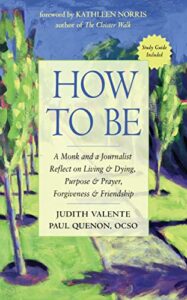
This book is a dialogue between two spiritual seekers—one a Trappist monk and the other a married professional woman. It is two people “stuttering to articulate life’s universal questions from diverse contexts and perspectives.”
How To Live: What The Rule of St. Benedict Teaches Us About Happiness, Meaning and Community
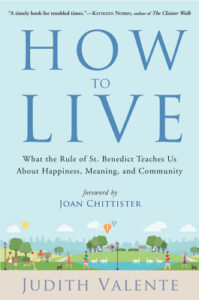
In How to Live, Judith Valente explores the key elements of the rule and clearly demonstrates how incorporating this ancient wisdom can change the quality and texture of our lives offering a way forward from the divisions gripping our country.
Read a review by Gregory Hillis of How To Live:
“A few years ago, I sat down with a Trappist monk under a gingko tree in a courtyard of the Abbey of Gethsemani in Kentucky. We were talking about the spiritual life, and I expressed to him my envy that he, a monk in a contemplative order, had the time and the opportunity to devote himself to long periods of prayer and silence…”
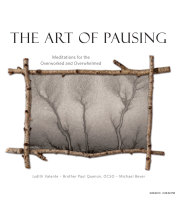 The Art of Pausing:
The Art of Pausing:
Meditations for the Overworked and Overwhelmed
“The Art of Pausing is a unique book for people who know they need to slow down but aren’t sure how to do it… This is the perfect gift for yourself or for anyone you love who is ‘overworked and overwhelmed,’ which is most of us on most of our days.”
– Gregory F. Augustine Pierce,
author of
Spirituality at Work:
10 Ways to Balance Your Life On-the-Job

Twenty Poems To Nourish Your Soul
“This is a thoroughly engaging and illuminating book. Judith Valente and Charles Reynard show us how we, too, can enter a poem through the openings our own lives give us.”
– Rosellen Brown
author of Before and After
and Tender Mercies
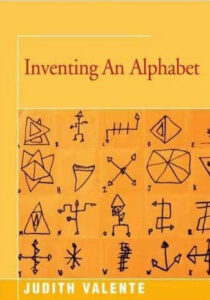
Inventing An Alphabet
A Collection of Poems
“[Her poems] own their own beauty, offer themselves abundantly to metaphor. Judith has constructed an active, even frisky language, pulling into the poem references and allusions that tease our minds as they amplify the poem’s subject and mood and landscape.”
– Mary Oliver
Pulitzer Prize winning poet

Discovering Moons
“The moon in the title of Judith Valente’s book, Discovering Moons, becomes, after reading these deeply felt poems, the moon invisibly tethered to earth, as spirit and body are mysteriously tethered in Valente’s work.”
– Stuart Dybeck, author,
Streets in Their Own Ink